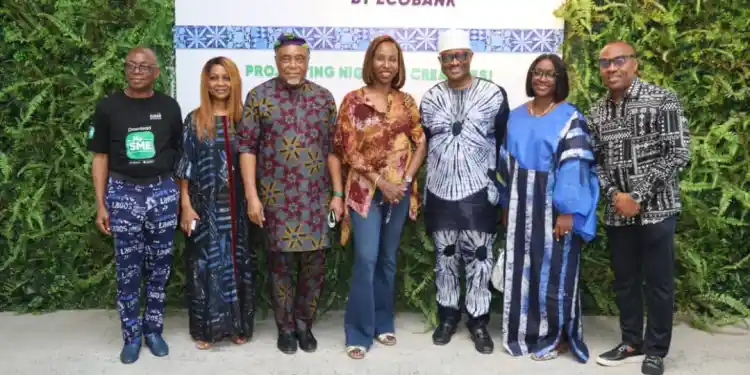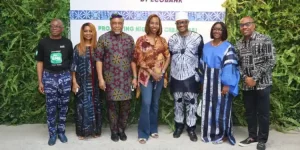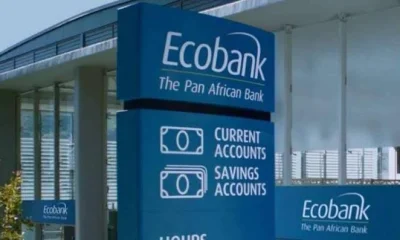
News
Ecobank Reiterates Commitment To Help Adire Industry Leverage AfCFTA

Ecobank Nigeria has restated its commitment to ensure that Nigeria’s Adire industry leverages the potential of the African Continental Free Trade Agreement (AfCFTA).
Speaking at the third edition of the annual Ecobank ‘Adire Lagos Experience’ in Lagos, the Executive Director, Commercial Banking, Ecobank Nigeria, Kola Adeleke, said the bank is committed to helping businesses exhibiting at the fair explore opportunities available through the Africa trade pact.

The event which is holding at the ultra-modern Ecobank Pan African Centre (EPAC), has seen over 100 exhibitors showcase locally processed adire attires made by indigenous designers.
“After the program, these 100 merchants, we are going to continue partnering with them. We are going to support them to build capacity. We are going to even use the opportunity for them to improve the quality of whatever they are producing for export purposes. Because ultimately, our goal is to ensure that Adire becomes like an African brand with global acclaim.
“This is very unique for us as an organization because it will help to grow our nation’s economy as we see the export potential there. We are going to profile all these merchants on the Ecobank single market trade hub and then position them so that they will be able to export their products to other countries in Africa and beyond, “he said.
Mr. Kola noted that Adire Lagos’ exhibition is part of the efforts of the bank to support and project the creative industry in the country, adding that as part of a Pan African bank which operates in 33 countries of Africa, Ecobank Nigeria will always look out to support various productive initiatives and the Adire exhibition fits into this goal.


(L-R) Kola Adeleke, Executive Director, Commercial Banking, Ecobank Nigeria; Bimbola Wright, Director, Ecobank Nigeria; Emmanuel Ikazoboh, Former Chairman, Ecobank Transnational Inc.; Carol Oyedeji, Deputy Managing Director; Dr. Adesegun Akin-Olugbade, OON, Chairman, Luwaji Advisory & Former General Counsel, AFC & ADB.; Titi Olujobi, Director, Ecobank Nigeria; and Kenneth Okere, Company Secretary, Ecobank Nigeria at the Ecobank Adire Exhibition in Lagos.
Meanwhile, the Commissioner for Culture and Tourism, Ogun State, Dr. Fagbayi Oluwasesan, has commended Ecobank for promoting Adire culture to help improve the sector.
Speaking during his visit to the fair, Fagbayi, said: “The fabric is synonymous to Ogun state. We are the custodians of Adire. It is an indigenous textile from Ogun State and we have to protect it. That’s why we are happy with Ecobank for what they’re doing today, assisting us to showcase what God has given to us, protecting it, and also telling the world that this is what is good for us to be using as fabric.”
He also said that the Ogun State government has commenced measures to address the challenge of imported adulterated Adire fabric, which poses a major threat to the local Adire industry.
“The State House of Assembly have commenced steps, through our ministry, to curb the excesses or inflow of Chinese adulterated fabric.
“First and foremost, we don’t need to address it as ‘Adire Chinese’. It is never Adire because it is a print on its own that doesn’t pass through the process of how the fabric is made. The original fabric is made manually, and it passes through nine stages before it is made.
“We are working on that and a committee has been set up with the approval of the Governor that they should go to the market, you know, look at what we can do and come up with a law, probably, though we may not have the capacity to ban it outrightly.
“We’re also taking it up with the National Assembly; the Representative Abeokuta South Federal Constituency has also raised a Bill at the National Assembly that has passed its second reading now. By the time that is done probably we will have the backing of the federal government in banning this adulterated fabric out rightly.”



























